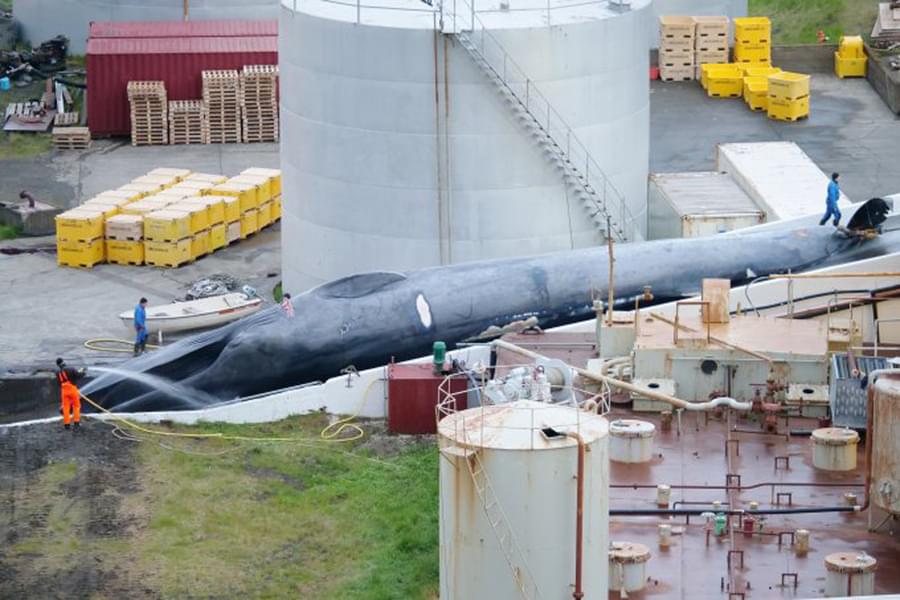ORCA have welcomed the news that there could be an end to commercial whaling in Iceland within two years.
The news comes after the Icelandic Fisheries Minister, Svandis Svavarsdottir, said it is unlikely that government licenses for whaling will be renewed when the existing quotas expire in 2023 as the practice has become economically unjustifiable.
Demand for whale meat in Iceland is low, with very few Icelanders buying or consuming it. Exports of meat from Iceland have also decreased in recent years, signifying no economic benefit for the country to continue whaling.
Svandis Svavarsdottir said, "Why should Iceland take the risk of keeping up whaling, which has not brought any economic gain, in order to sell a product for which there is hardly any demand?"
Iceland (along with Norway) is one of two countries in Europe that still participates in commercial whaling, despite the International Whaling Commission issuing a moratorium on commercial whaling, which came into effect in 1986.
Whales play an essential role as ecosystem engineers, playing a key role in maintaining the health of our oceans and so continuing to hunt them has a devastating impact on the wider health of the marine environment.
Iceland resumed commercial whaling in 2006 targeting minke whales and fin whales. The last minke whales hunted were in 2018 and in 2020 the only remaining minke whaling company made a public statement confirming the cessation of all its whaling operations. The company cited economic inefficiency and the extended whale sanctuary in the Faxaflói Bay, off Reykjavik, as the main reasons for ending the hunt.
The last fin whale hunts also took place in 2018, with 146 animals slaughtered including many pregnant females and at least two rare blue whale fin whale hybrids, despite blue whales being a protected species.
Iceland’s annual quotas for 2019 - 2023 allowed for 209 fin whales to be hunted and killed and 217 minke whales. These current whaling permits are due to run out in 2023 and if they are not renewed, baleen whales in Icelandic waters could finally be safe.
Sally Hamilton, ORCA Director, said:
“Whaling is a brutal and barbaric practice that has no place in the modern world. This is further evidence that the commercial whaling industry is in decline, and with sales of meat falling it is more important than ever that action is taken. The public, NGOs, governments and industry must continue to pressure the handful of countries flying in the face of the overwhelming global consensus on this practice so that one day we can see an ocean where whales are safe from hunting.”

